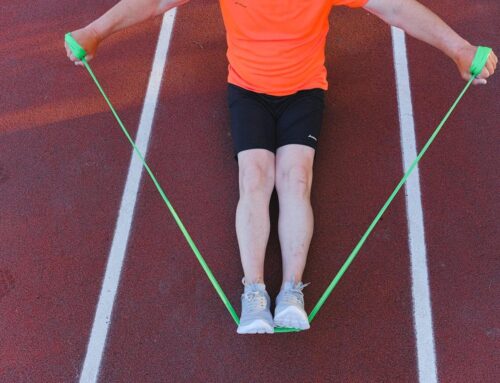INTRODCTION
In the realm of sports and athleticism, the pursuit of excellence knows no bounds. Athletes dedicate countless hours to training, refining their skills, and pushing their bodies to the limit in pursuit of victory. However, amidst the rigorous training regimens and intense competition, one often overlooked aspect plays a crucial role in determining success: nutrition.
Sports nutrition, the science of fueling the body for optimal athletic performance, is a game-changer for athletes at all levels. Whether you’re a professional athlete striving for Olympic gold or a weekend warrior aiming to improve your personal best, understanding the principles of sports nutrition can elevate your performance to new heights.
The Foundation of Sports Nutrition
At its core, sports nutrition revolves around the concept of providing the body with the nutrients it needs to function optimally during exercise and recover efficiently afterward. This involves not only the quantity of food consumed but also the quality and timing of nutrient intake.
Macronutrients: The Building Blocks of Performance
Macronutrients—carbohydrates, proteins, and fats—are the cornerstone of any athlete’s diet. Each plays a vital role in fueling performance and supporting recovery:
Carbohydrates: Often referred to as the body’s preferred fuel source, carbohydrates are essential for providing energy during high-intensity exercise. Athletes rely on carbohydrates to fuel their muscles and maintain glycogen stores, which are depleted during prolonged physical activity.
Proteins: Crucial for muscle repair and growth, proteins are the building blocks of lean muscle tissue. Athletes require adequate protein intake to support muscle recovery and adaptation, especially after strength training or endurance exercise.
Fats: While often demonized, fats are a valuable source of energy for endurance athletes and play a role in hormone production and cellular function. Healthy fats, such as those found in nuts, seeds, and avocados, are an essential component of a well-rounded sports diet.

Micronutrients: Enhancing Performance and Recovery
In addition to macronutrients, micronutrients such as vitamins and minerals are vital for supporting overall health and performance. Athletes have increased nutrient needs due to the demands placed on their bodies during training and competition. Key micronutrients for athletes include:
Vitamin D: Important for bone health and immune function, vitamin D deficiency can impair athletic performance and increase the risk of injury.
Calcium: Essential for bone strength and muscle function, adequate calcium intake is crucial for athletes, particularly those engaged in high-impact sports.
Iron: Required for oxygen transport and energy metabolism, iron deficiency can lead to fatigue and decreased endurance performance.
Electrolytes: Including sodium, potassium, and magnesium, electrolytes play a vital role in fluid balance, nerve function, and muscle contraction. Replenishing electrolytes lost through sweat is essential for preventing dehydration and maintaining performance during prolonged exercise.
The Role of Hydration in Sports Performance
Hydration is another critical aspect of sports nutrition that directly impacts athletic performance. Even mild dehydration can impair physical and cognitive function, making proper fluid intake essential for athletes.
Pre-Exercise Hydration
Ensuring adequate hydration before exercise is crucial for optimizing performance and preventing dehydration. Athletes should aim to consume fluids in the hours leading up to exercise and drink approximately 16-20 ounces of water or a sports drink 2-3 hours before activity.
During Exercise Hydration
During prolonged exercise, particularly in hot or humid conditions, athletes must replenish fluids lost through sweat to maintain hydration and prevent dehydration. Sports drinks containing electrolytes and carbohydrates can help replace lost fluids and provide an additional energy source during prolonged activity.
Post-Exercise Hydration
Proper hydration doesn’t end when the workout is over. Replenishing fluids lost during exercise is essential for supporting recovery and preparing the body for future training sessions. Athletes should continue to drink fluids after exercise and monitor urine color to assess hydration status.
Optimizing Performance Through Nutrition Timing
In addition to the types and quantity of nutrients consumed, the timing of food intake can significantly impact athletic performance and recovery. Strategic nutrition timing involves aligning nutrient intake with training and competition to maximize energy levels, optimize recovery, and enhance overall performance.
Pre-Exercise Nutrition
Eating a balanced meal or snack containing carbohydrates and a moderate amount of protein before exercise can provide the energy and nutrients needed to fuel performance. The timing of pre-exercise meals will vary based on individual preferences and the intensity of the activity but aim to consume a meal 2-3 hours before exercise or a smaller snack 30-60 minutes before.
During Exercise Nutrition
For prolonged exercise lasting more than 60-90 minutes, consuming carbohydrates during activity can help maintain blood sugar levels and delay fatigue. Easily digestible sources such as energy gels, sports drinks, or dried fruit can provide a quick energy boost without causing gastrointestinal discomfort.
Post-Exercise Nutrition
The post-exercise period, often referred to as the “anabolic window,” is a critical time for replenishing glycogen stores and supporting muscle repair and growth. Consuming a combination of carbohydrates and protein within 30-60 minutes after exercise can enhance recovery and promote muscle adaptation. Aim for a 3:1 or 4:1 ratio of carbohydrates to protein for optimal recovery.
Individualized Nutrition Strategies for Athletes
While general guidelines can provide a framework for sports nutrition, it’s essential to recognize that individual athletes have unique needs and preferences. Factors such as age, gender, sport, training volume, and body composition can influence nutrient requirements and dietary strategies.Working with a registered dietitian or sports nutritionist can help athletes develop personalized nutrition plans tailored to their specific goals and circumstances. These professionals can provide guidance on meal planning, supplementation, hydration strategies, and timing of nutrient intake to optimize performance and support overall health.
Conclusion
In the pursuit of athletic excellence, sports nutrition serves as a powerful tool for optimizing performance, supporting recovery, and enhancing overall health. By understanding the role of macronutrients, micronutrients, hydration, and nutrition timing, athletes can unlock their full potential and achieve their goals on the field, court, track, or gym. With the right fuel and proper guidance, every athlete has the opportunity to reach new heights and redefine what’s possible in sport.





Leave A Comment
You must be logged in to post a comment.